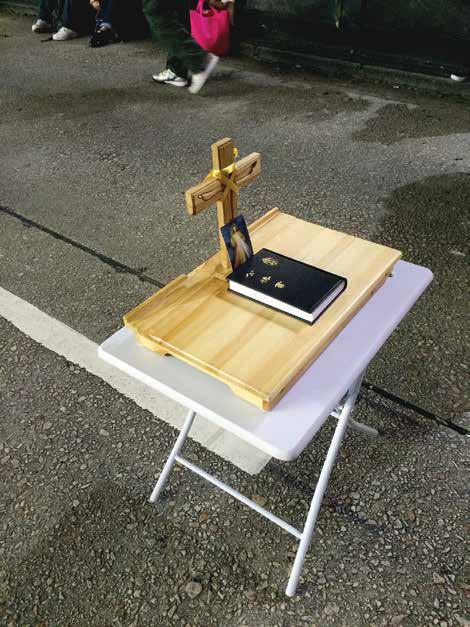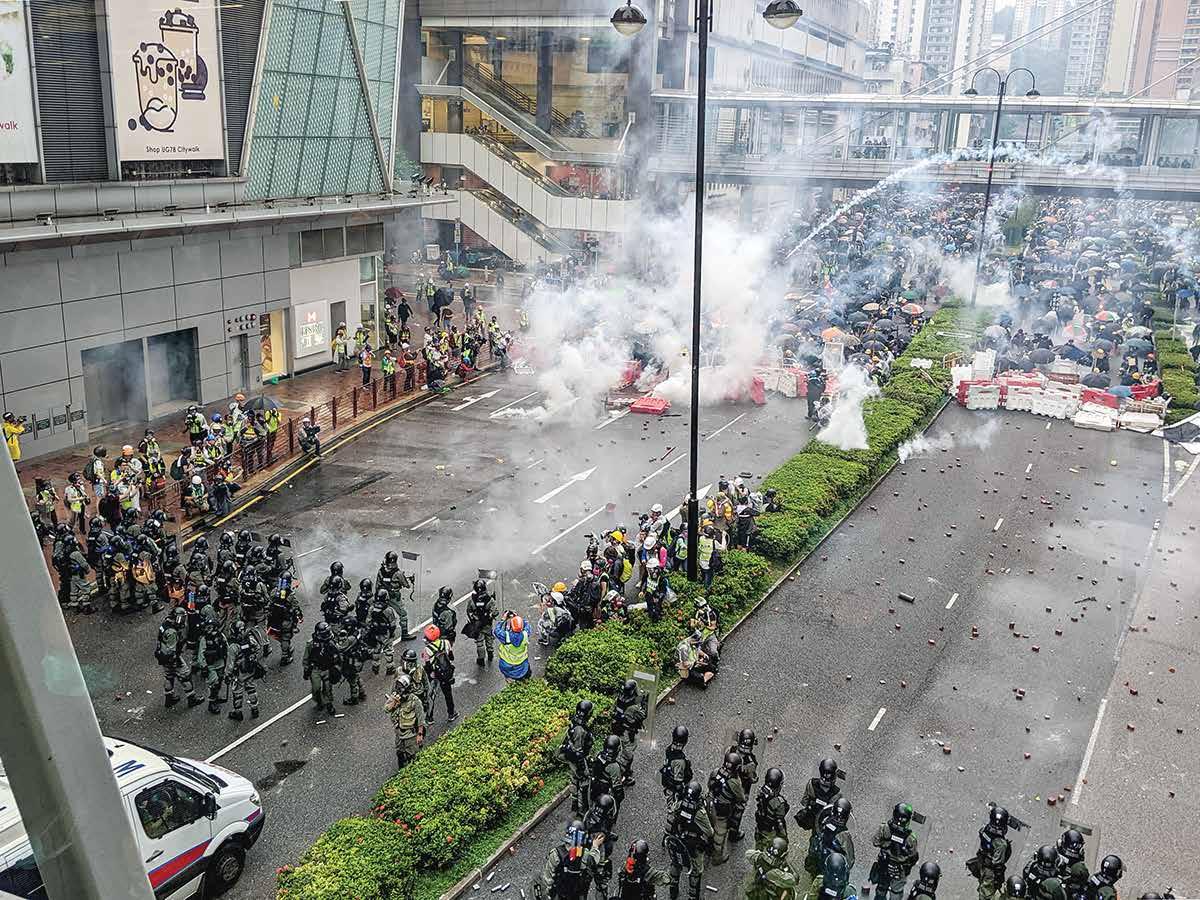
6 minute read
Agree To Differ, Resolve In Love” An Interview With Rev Dr Eric So
Rev Dr Eric So was ordained as a pastor in 1988, and served as General Secretary of Hong Kong Christian Council from 1999 to 2005. He has since been General Secretary of Hong Kong Council of the Church of Christ in China(HKCCCC), overseeing the operation of more than 50 branch churches, about 40 primary and secondary schools, and at least five kindergartens. Article from "News and Views, Hong Kong Christian Council, 3rd Quarter 2019 Issue"
What has been the most profound scene for you in these past four months of protests?
There have been several profound scenes in my mind, mostly from TV. Of course, there were the two mass demonstrations on 9 June and 16 June. In fact, I was trying to get to a prayer meeting held in Causeway Bay before one of those marches, but I was stuck at Admiralty. I called the organisers and apologised that I didn’t think I could make it. Then on 1st of July, the radical protesters entered the Legislative Council building by force. I watched the scenes on live broadcast for hours from the time they entered and destroyed many facilities of the building. As the conflicts and violence have continued, even escalated all over the city, my deepest feeling is sadness. I don’t understand why this has happened. Of course, there are different reasons people feel so angry, but in Hong Kong, we are a modern civilised city. I could not imagine that people express their anger in this way. I have never seen this before. This was a shock to me.
What is the situation in the churches in Hong Kong?
It is another big challenge to the unity of the Hong Kong Church. The views and positions on either side– whether on the Bill or the measures or the attitude expressed by the government - are really divided among Christians. Depending on the church leadership and the minister, there are different degrees of conflict. For example, there may be a church where the minister is sympathetic to the protesters, but the members are not. They ask the pastor not to talk too much on these controversial issues but stick to teaching the Bible as the core ministry. Another church may have one-third to one-half of the members who are young people. The minister, however, is not in support of the violent protests. During one sermon, a group of young people walked out from the service to express their feelings.
The division and brokenness have already occurred. One side thinks that this is the time to voice out for democracy and stand with the young people. The other side thinks the Extradition Bill by its nature was not so bad as those protesters thought. Of course, the government process on the bill should have taken a better way, not rush, take a slow process to listen to more views from the public and different groups. Unfortunately, however, when one side regards the other as wrong, then their position becomes either you stand with me or we won’t spend any more time to try to understand your view or to dialogue. As a church, we should be more rational and take a more peaceful way of settling our disagreements. We need to experience our oneness in Christ. And we should not use any violence.

Micah 6:8 is often quoted, but we need to look at the verse as a whole. The beginning asks “What is good?” “What does the Lord require?” The answer – to do justice, love kindness and walk humbly with God. A good person, a good society requires justice, mercy and humility. The Old Testament teaches that justice is fighting for the rights of the underprivileged, to protect the poor and help those who are powerless. As God’s children, our behaviour must exhibit all these characteristics. We definitely cannot agree with any kind of violence. The church should be humble and carry out God’s will by a servanthood model. What Hong Kong needs now is not only justice but to know how to show love and mercy to all people. At the same time, no matter who we are, we serve others, not act out for personal interest.
The passage from Philippians 2 also comes to mind. I heard a sermon when I was in Vancouver that introduced the context. There were two distinct groups in the Philippian church evangelised by Paul. The first group was led by Euodia, a Jew, a merchant, her business is serving more high-class people. She and her family are quite rich. They were converted and baptised by Paul. The second group was the family and the official who worked in the jail. He wasn’t a Jew but a local Philippian, and he is a civil servant. Maybe he had persecuted Paul and Silas in the past. But his family was converted and baptised too. So the church had two different groups with different backgrounds, social status and culture. And when you look at Philippians, you find Paul was grateful to the church where he found unity, love, caring and kindness. In Chapter 2, he said they should have the same mind, have the same love, be humble and look after others’ interests, not just their own. They should have the mind that was also in Christ Jesus.
The teaching in Philippians also helps me to address the conflicts in Hong Kong. Everyone will have his or her mind, thoughts, views, values. But when we become a member of the body of Christ, we should regard those who don’t have the same understanding as mine are still my brother and sister in Christ. I would like to quote a famous Chinese Christian in ecumenical history. Rev Dr T.T. Lew (盧廷芳) was the Dean of the School of Religion of Yenching University. In 1922, he said to a national church conference that was in the midst of many conflicts: “Let us agree to differ but resolve in love.” Diversity is a reality. We recognise it, accept it and respect others who are different. But we don’t say you go your way; I go my way. We must do something to come together as Christians to find a way out together.

“
What outcome for Hong Kong would you like to see in the end?
I really don’t know. There are so many deadlocks and hurdles. Christians in Hong Kong have been praying very hard to find a way out and resolve the problems. We believe the prayers have been heard. But we ask why do the protests continue? It seems that God has not intervened. The situation is stuck. In a sermon I preached recently, I found an answer in the text from Hebrews 11:1-16. In verse 1, the author says that faith is the substance of the things hoped for, the evidence of things not seen. Examples follow in the lives of Abel, Enoch, Noah and Abraham. And every story begins with the same phrase– “by faith”. The passage is talking about more than faith. It’s also about hope. That means if you have faith, even if the hope is far away, even not realised, then faith is the assurance of hope, the conviction of things not seen. My conclusion is for Christians in Hong Kong, even if there is no turning to a better situation, we know our hope is in God who will lead Hong Kong to His way. So, we continue to pray and to be the salt and light of this city.








